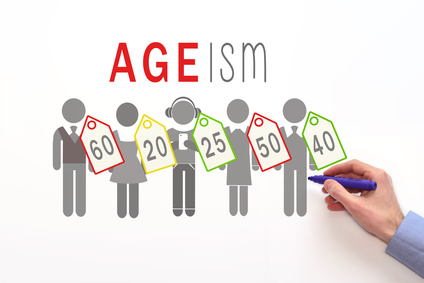Some job descriptions ask for someone who’s ‘young and vibrant’, while others might demand at least 10 years’ experience or more. In those cases, you might wonder whether you’re too young or too old for the role, and you might not even bother to apply.
But any company that’s only willing to employ someone of a certain age is practicing age discrimination – and that’s illegal.
Perhaps you were hoping for promotion, but you didn’t get it because you look the ‘wrong’ age? Or maybe you’ve missed out on the opportunity to attend training courses because your employer thinks you’re too young or too old to benefit?
Again, that counts as age discrimination, and you might have the right to make a claim for compensation.
Finally, no-one has the right to victimise you or harass you because of your age. This includes teasing descriptions or banter such as “old timer” or “wet behind the ears”.
Have you experienced age discrimination in any of these situations?
Applying for a job
An employer does have the right to ask for your date of birth, but they are not allowed to use that information to discriminate against you.
There are two occasions when they can insist on an age limit:
- When it’s imposed by law
- When it’s objectively justified (see below)
Long-service benefits
Some employers offer long-service benefits to incentivise staff to stay and reward their loyalty when they do. They are not usually allowed to set a limit that’s longer than five years.
Training
Training providers are not usually permitted to set upper or lower age limits for training.
Redundancy
When an employer makes redundancy decisions, they must not discriminate against older workers either directly or indirectly.
The statutory amount of minimum redundancy pay is not affected by age, even if you’re under 18.
Retirement
You can usually choose the age that you want to retire – usually, your employer can’t insist on it.
If you choose to work past your State Pension Age, you can begin to draw your State Pension then, or you can postpone it and become entitled to a higher amount when you do finally retire.
When age discrimination IS permitted
An employer is able to treat people differently when they can objectively justify it. Let’s unpick the legal jargon for you:
- ‘Objective justification’ means the employer must be able to justify that it’s a proportionate way of achieving a legitimate aim.
- ‘Proportionate’ means that they must have no reasonable alternative to introducing an age limit.
- ‘Legitimate aim’ means based on factors such as business needs or efficiency.
In case you were wondering, an employer is also permitted to make special provisions and treat people differently if it’s in order to protect the welfare of their younger or older employees.
Need help?
For a free initial review of your claim, call 0808 168 7288 or Make An Online Enquiry>.
We have already helped thousands of people to win millions of pounds in compensation.
You have a choice of ways to pay, including ‘no win, no fee’.
